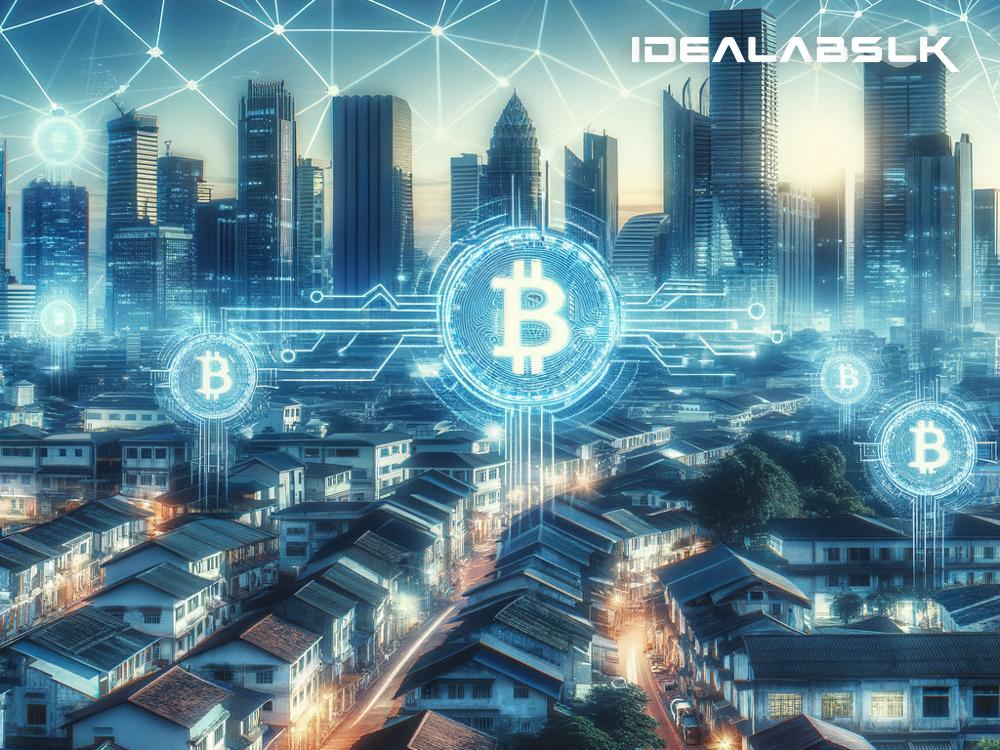Blockchain for Real Estate: The Future of Secure Digital Property Transactions
In the past few years, technology has dramatically shifted how we approach everyday activities. One of the most groundbreaking technologies making waves across various industries is blockchain. While many associate blockchain primarily with cryptocurrencies like Bitcoin, its potential extends far beyond. Today, we're exploring an incredibly exciting application of blockchain technology: transforming the real estate industry into a more secure, efficient, and transparent space for digital property transactions.
What is Blockchain?
Let's break it down into simple terms. Picture blockchain as a digital ledger or record book that's not held in one place but spread out across numerous computers around the world. Every time a new transaction occurs, it gets recorded in this ledger. What makes it stand out is its incredibly secure nature—once a transaction is added, it's nearly impossible to alter. This characteristic brings a new level of trust and security to any transactions made on a blockchain.
The Current State of Real Estate Transactions
Traditionally, buying or selling property is a long, paperwork-heavy process, involving multiple parties like agents, banks, and legal teams. This process is not only time-consuming but can also be opaque, leaving room for errors or even fraud.
Moreover, every transaction involves significant costs for all parties involved due to these complexities. There are also issues around the integrity of property records, which can be susceptible to manipulation or loss over time.
How Blockchain is Changing the Game
Blockchain technology promises to revolutionize real estate transactions by addressing these problems head-on. Here's how:
1. Enhanced Security and Transparency
Because blockchain operates on a system of verified transactions and encrypted records, it significantly reduces the risk of fraud. Every transaction on a blockchain is transparent and immutable—meaning once it's recorded, it can't be tampered with. This transparency ensures that all parties involved in a real estate transaction can trust the process.
2. Simplification of Processes
Blockchain can streamline the real estate buying/selling process by eliminating intermediaries like attorneys and banks. Smart contracts, which are self-executing contracts with the terms of the agreement directly written into code, automate tasks that were previously manual and time-consuming. This not only speeds up transactions but also reduces costs, making the process more efficient for everyone involved.
3. Accurate Record Keeping
Blockchain's digital ledger offers an efficient way to manage property records. By digitizing these records, real estate assets become easier to track and transfer, and all historical data related to a property, including repairs or title changes, is securely stored and readily accessible. This solves the problem of record-keeping integrity that plagues the traditional system.
4. Democratization of Access
The traditional real estate market can be hard to break into for small investors. However, blockchain opens up opportunities for fractional ownership, allowing more people to invest in property by purchasing just a part of a real estate asset, similar to buying stocks in a company. This could fundamentally change investment in real estate, making it accessible to a broader audience.
Real-World Applications and Success Stories
Some countries and companies are already testing the waters with blockchain in real estate. For example, Sweden has experimented with blockchain to manage land titles, significantly speeding up the process and reducing fraud. Similarly, several startups are creating blockchain platforms to buy, sell, and manage real estate transactions digitally, showing promising early results.
The Future is Here
While we're still in the early days of incorporating blockchain into real estate, the potential is undeniable. The technology offers solutions to longstanding problems within the industry, from security concerns to inefficiencies caused by outdated systems.
Adopting blockchain could mean a future where real estate transactions are significantly faster, more affordable, and accessible to everyone. For an industry that's been slow to change, this could be the revolutionary shift it needs to move into the digital age.
As we watch blockchain technology continue to evolve, one thing is clear: the world of real estate is on the brink of a major transformation. The future of secure digital property transactions is not just an idea—it's becoming a reality, promising a more efficient and transparent market for generations to come.

